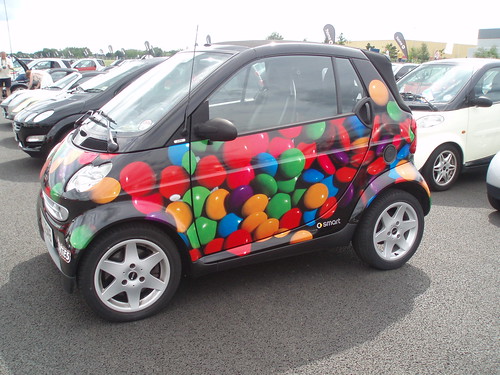(Source: Wall Street Journal)
Last summer, when gas cost $4 a gallon, buyers snapped up small cars so fast that dealers couldn’t keep them in stock. Now, with gas prices half that level, almost 500,000 fuel-thrifty models are piled up unsold around the country.
The turnabout comes at a bad time for the struggling U.S. car industry, which has revamped factories and shifted product plans to produce more small cars in coming years. The moves are prompted by coming stricter federal fuel-economy standards and the Obama administration’s car-bailout plan, which encourages auto makers to boost their vehicles’ mileage.
Practically every small car in the market is stacked up at dealerships. At the end of February,Honda Motor Co. had 22,191 Fits on dealer lots — enough to last 125 days at the current sales rate, according to Autodata Corp. In July, it had a nine-day supply, while the industry generally considers a 55- to 60-day supply healthy.For other models the supply situation is even worse. Toyota Motor Corp. has enough Yaris subcompacts to last 175 days. Chrysler LLC has a 205-day supply of the Dodge Caliber. And Chevrolet dealers have 427 days’ worth of Aveo subcompacts. At the current sales rate, General Motors Corp. could stop making the Aveo and it wouldn’t run out until May 24, 2010.
“I don’t think Americans really like small cars,” said Beau Boeckmann, whose family’s Galpin Ford in southern California is the country’s largest Ford dealer. “They drive them when they think they have to, when gas prices are high. But we’re big people and we like big cars.”
The logjam of small cars is caused in part by the recession, which has sapped sales of all types of vehicles. But it also underscores how badly gasoline prices have whipsawed the industry. A year ago, car companies rushed to react when Americans practically stopped buying large vehicles and flocked to hybrids and small cars.
Click here to read the entire article (Subscription Reqd. Free Registration available).





